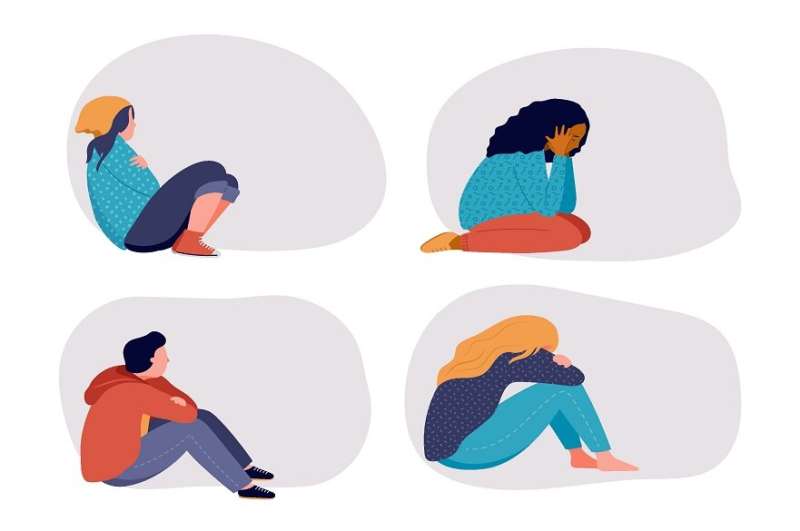

The mental health of young trans and gender diverse people is being disproportionately affected by the COVID-19 pandemic, according to new research by psychologists at Nottingham Trent University.
The study questioned people aged 16-25 years old via an online survey. More than 160 participants answered questions on how social distancing measures had impacted on their social lives, mental health and access to health services. They were also asked to complete measures of anxiety and depression.
Of those questioned, just over half were living at home with parents (54%) when the survey was live. Around 63% were either under the care of a gender clinic or on a waiting list to be seen, and just 8% were happy with their stage of transition.
Findings revealed that those who experienced a greater impact of the COVID-19 outbreak and its associated social distancing measures reported poorer mental health, with 56% agreeing or strongly agreeing that they were struggling to access mental health care.
Lack of social support, negative interpersonal interactions, unsupportive and non-affirming living environments and the inability to access gender-affirming treatments, such as haircuts or hair removal, were all factors that were associated with poor mental health.
Although some accessed virtual peer-support provided by organizations, others found it difficult to engage and build the same rapport as with face-to-face interaction. A number of participants also struggled to find a safe space in their living environment to engage in online sessions due to fear of unsupportive or unaware co-habitants overhearing.
Dr. Beth Jones, lead researcher and senior lecturer in Psychology at the University’s School of Social Sciences, said: “We know that the pandemic has been especially hard on young people, and many of them have experienced anxiety and depression. However, very little attention has been focused on trans and gender diverse people within this age group, who may be particularly vulnerable to pandemic-related mental health outcomes due to the social challenges, gender dissonance, and poor mental health they already experience.
“For example, social distancing measures which remove much of their access to social support which affirms their gender identity can contribute to the worsening of their mental health. This is especially so if they are in an unsupportive environment where they can’t live authentically, as around half of our respondents reported. Without this vital affirming support, the young people felt invisible and invalidated.”
With previous research showing that young trans and gender diverse people are already experiencing poorer mental health compared to their cisgender peers, the study highlights the importance of opportunities to stay socially connected as the UK comes out of lockdown, and beyond. Recommendations include the need to consider the high levels of social anxiety and threat already experienced when planning interventions.
Dr. Jones added: “The challenges faced by this population in accessing formal support need to be acknowledged. Sadly, some of the young people highlighted how their social network was already impoverished and therefore nothing had been lost as a result of the social distancing regulations due to the isolation they already experienced.
“Affirming and supportive interactions are key in supporting young trans and gender diverse people. Our findings further demonstrate the importance of creating a safe space that young people cannot only access discreetly but where they will have their gender identity and expression affirmed.”
Source: Read Full Article